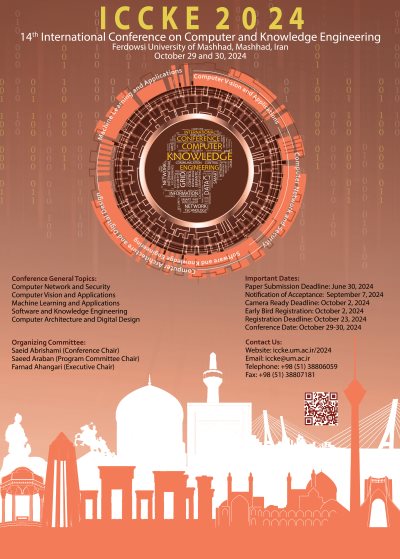0% Complete

Authors :
Keywords :
Abstract :
List of archived papers
Seyed Majid Khorashadizadeh - Mehdi Sadeghi Bakhi - Fatemeh Seifishahpar - AliMohammad Latif
Pooyan Rahmanzadeh Gervi - Ahad Harati - Sayed Kamaledin Ghiasi-Shirazi
Alireza Aghelan - Modjtaba Rouhani
Maliheh Araghchi - Nazbanoo Farzaneh
Fatemehsadat Ghanadi Ladani - Hamidreza Baradaran Kashani
Mostafa Sabzekar - Seyed Vahid Mousavainejad
Sara Saberi moghadam - Reza Azmi - Maral Zarvani
Mehrdad Mohammadian - Neda Maleki - Tobias Olsson - Fredrik Ahlgren
Hedieh Ahmadi - Seyed Mohammad Hossein Hasheminejad
Sajad Rezaei - Jafar Tanha - Zahra Jafari - SeyedEhsan Roshan - Mohammad-Amin Memar Kochebagh



